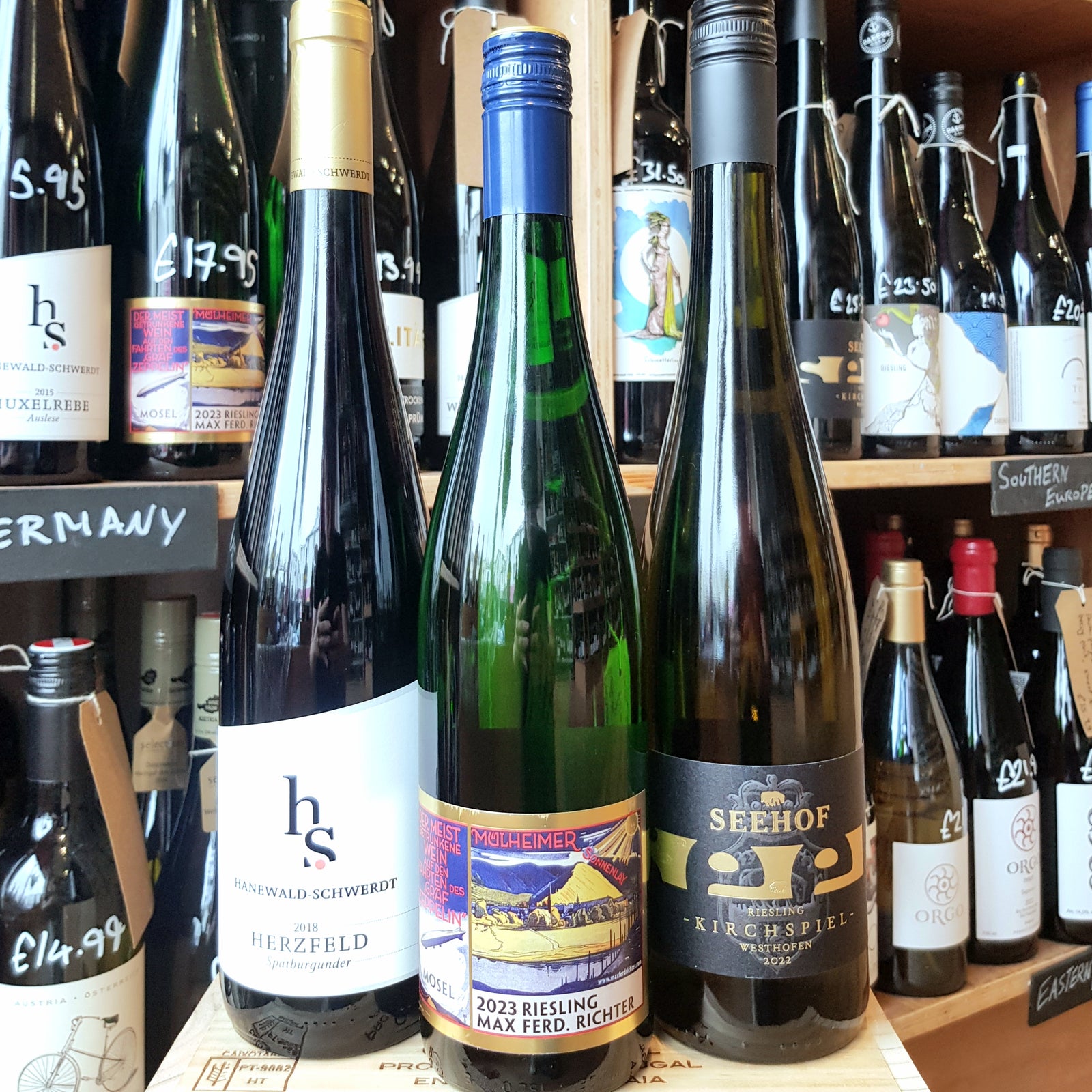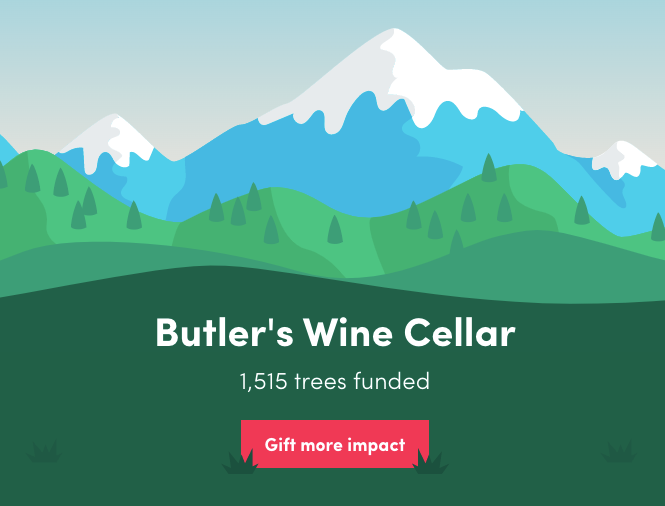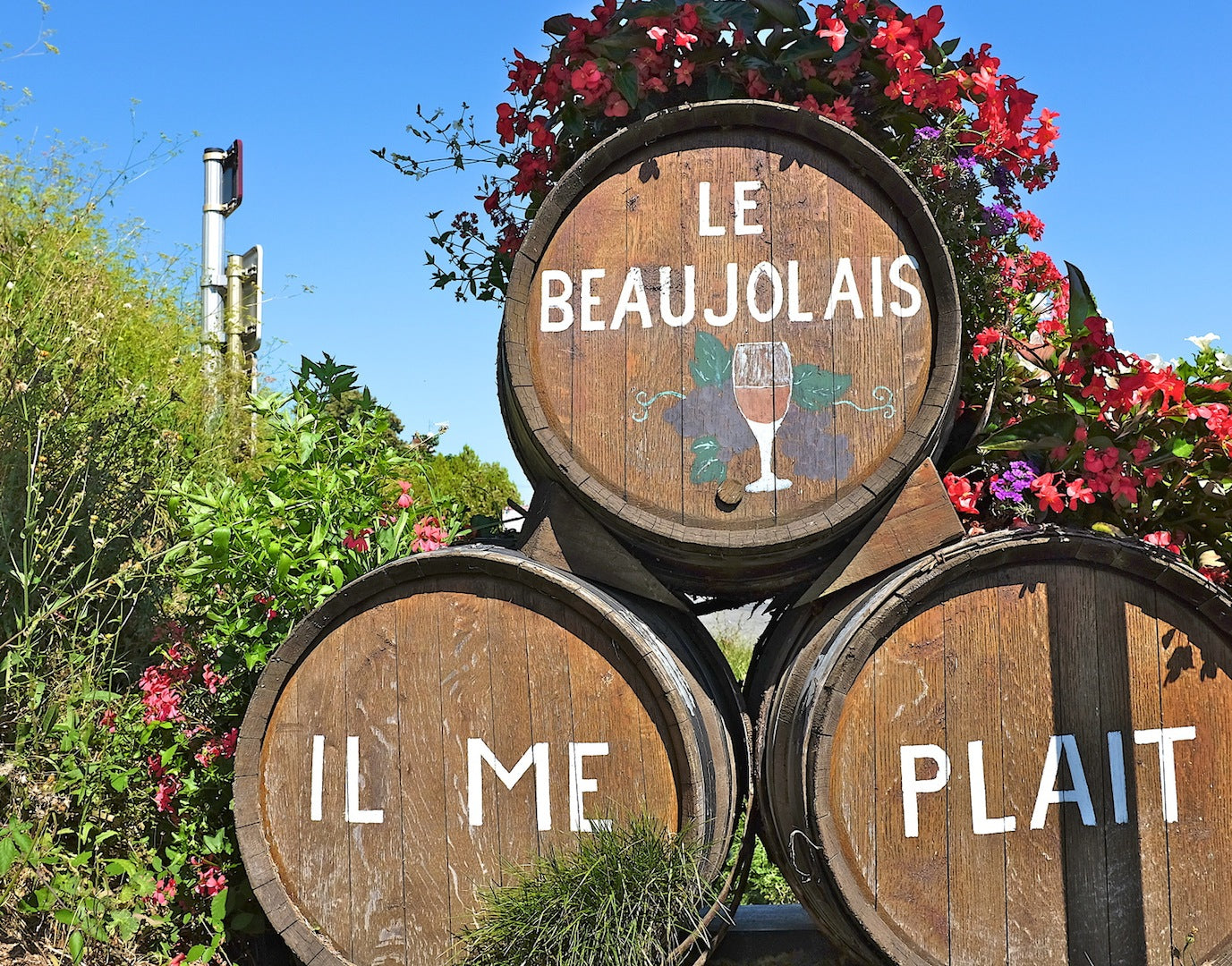
I feel that many people avoid German wine, largely due to bad prior experiences with mass-market industrial wines and misconceptions regarding sweetness. This is a shame as German wine is beautifully diverse and, in my opinion, of consistently very good quality for the price. While it would take a book to explain every intricacy of variety, region and style of wine in Germany (and there are a number of excellent ones) I am just aiming to give you a little overview and share a few excellent delights from our shelves!
Riesling and what else?
There is no doubt that Riesling is king in Germany, the most planted variety and responsible for the majority of the country's finest and most sought-after wines. Riesling's key characteristic is very high natural acidity, giving wines with immense freshness and ageing potential. Each region growing Riesling has its own characteristics, shaped by their climates and soils, with the cooler areas traditionally making wines with a degree of residual sugar to balance that powerful acidity, whilst warmer regions produce dry Riesling in greater quantities. If you're looking for dry wines, the word Trocken on a label will be your guide, but you might be surprised how much you enjoy a traditional Mosel Riesling with a touch of sweetness!
The Pinot varieties are also common across Germany, known under their German names Spatburgunder, Weissburgunder and Grauburgunder (Pinot Noir, Blanc and Gris respectively). German Spatburgunder is one of the best value alternatives to red Burgundy, typically carrying more of the savouriness and delicacy than Pinot Noirs from the USA or the antipodes.
There are a number of other varieties, largely indigenous to Germany, found throughout the country, including but not limited to: Silvaner, Huxelrebe, Siegerrebe, Elbling, Lemberger, Kerner and Muller-Thurgau.
Max Ferd. Richter Mulheimer Sonnenlay 'Zeppelin' Riesling - £17.95 Sustainable

Yes that name is quite a mouthful - to break it down into its components, this is Riesling from the Sonnenlay vineyard in the village of Mulheim in the Mosel made by the Max Ferd. Richter winery. A family-owned winery since 1680, this fantastic estate is now run by Dirk Richter and his son Constantin, and produces a range of stunning Rieslings from a number of vineyards along the river Mosel. The Sonnenlay is their largest, with a name meaning sun (sonne) and slate (lay) which describes it aptly - a steep southwest facing slope of loose slate that soaks in the afternoon sunshine above the village of Mulheim.
The beautiful label is a reference to the history of this vineyard, wines from the Sonnenlay were served on the great zeppelins of the 20s and 30s, leading local winegrowers to commission artist Hans Schlosser to design this commemorative label still in use today.
The wine is archetypal Mosel, 11% alcohol with the slightest suggestion of sweetness. Brilliantly aromatic with apple blossom, gardenia, peach and citrus fruits. Lovely juicy orchard and stone fruit is the first impression on the palate, followed by the racy acidity and long finish with unmistakeable slate minerality.
Seehof Kirchspiel Riesling Trocken 2022 - £25.50 Vegan, Sustainable

Moving south now, to the Rheinhessen region which has garnered a very high reputation for powerful dry Rieslings. The area around the villages of Westhofen and Nierstein is flatter than the dramatic slopes of the Mosel, and the soil is limestone as opposed to slate. The Kirchspiel vineyard is one of the most famous, with the most famous example from Klaus Peter Keller selling for north of £200 a bottle. Florian Fauth of Seehof happens to be his brother-in-law and he has produced a gorgeous Kirchspiel that punches well above its modest pricetag!
Broad and complex, with ripe fruit ranging from mango to yuzu in the aroma and an intriguing hint of smoke on the nose. On the palate it has substantial heft and power, its full body always kept in check by the robust acidity. This will age well, developing in richness and spice, but it is so delicious now it may be hard to keep any around for long!
Hanewald-Schwerdt Herzfeld Spatburgunder 2018 - £31

The Pfalz region is located north over the border from Alsace in France, and many of the same varieties can be found there, including excellent Pinots of all colours. Cousins Thomas Hanewald & Stephan Schwerdt run this excellent estate in the town of Leistadt, founded by their grandfather in the 1950s. A prehistoric reef in the area forms the limestone soils that are so excellent for growing Pinot Noir, the Herzfeld is their finest site for the variety. They age this wine for two years in French oak barrels before release, contributing to the silky refined feeling of the tannins.
A rich and alluring aroma of blackberries, raspberries and mulberries with some smoke, clove and floral hints adding to the complexity. The palate has a lovely balance of density and drinkability, with real intensity to the dark berry flavours and impressive grip from the velvety fine tannins into the very long finish. A wine that would be perfect paired with the rich savoury flavour of mushrooms or game.









Leave a comment (all fields required)